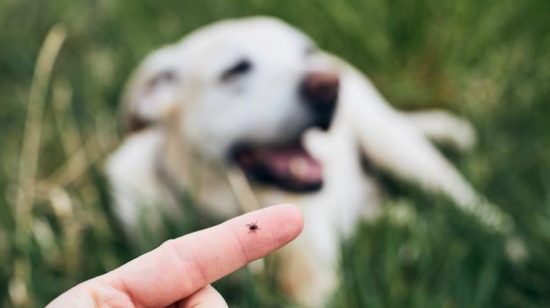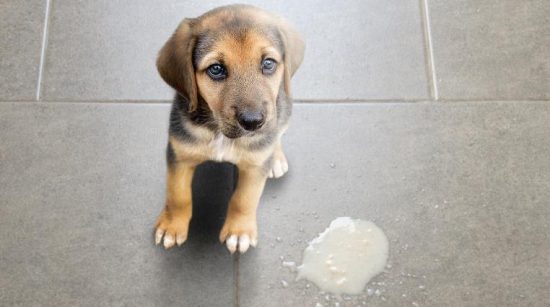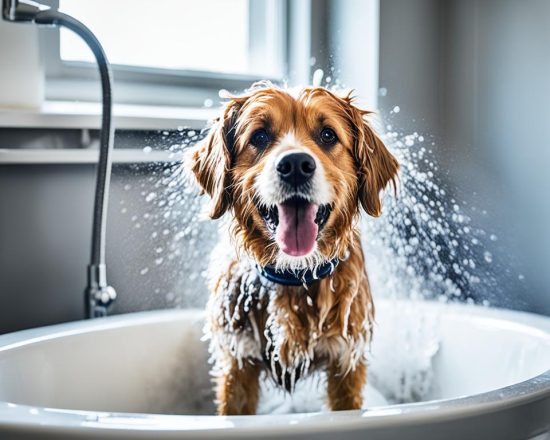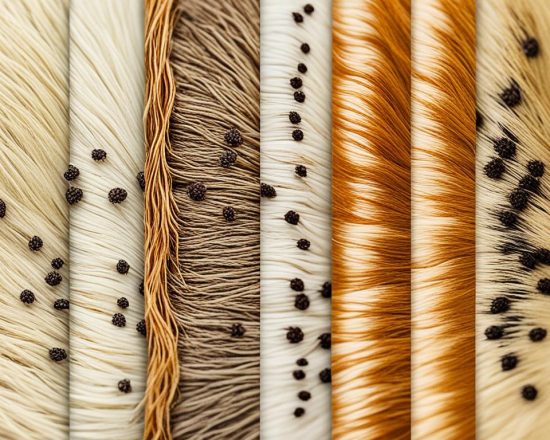How Long Do Rabbits Live? Lifespan of Pet Rabbits
How long do rabbits live? Learn about the lifespan of pet rabbits and factors affecting their longevity in this informative guide.
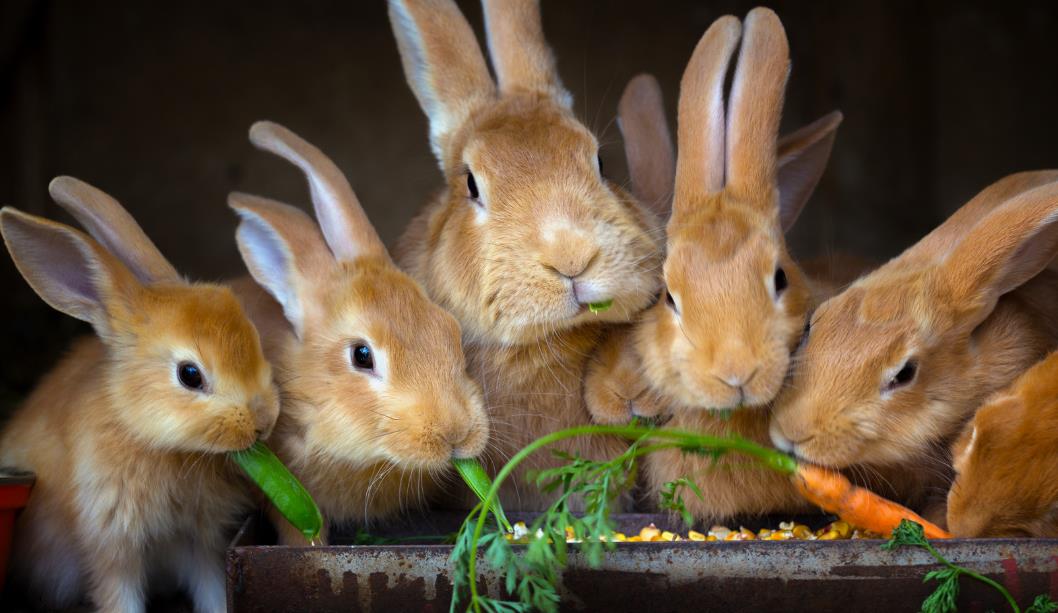
Did you know that the oldest rabbit on record lived to an incredible 18 years and 10 months? While this may seem like an outlier, the average lifespan of a domestic rabbit is still quite impressive, with most pet rabbits living between 8 to 12 years. Unlike their wild counterparts, who face constant stress and predation, domestic rabbits have the luxury of regular access to food, water, and safe hiding spots – all of which contribute to their longevity. In this blog, we’ll discover how long do rabbits live.
Whether you’re considering getting a pet rabbit or you already have one, understanding the typical rabbit lifespan will help you provide your furry friend with the best possible care. Rabbits are active, intelligent, and social animals that can make excellent companions, but it is crucial to educate yourself about their specific dietary, housing, and medical needs – all of which are important factors in determining their overall health and longevity.
Introduction to Rabbit Lifespan
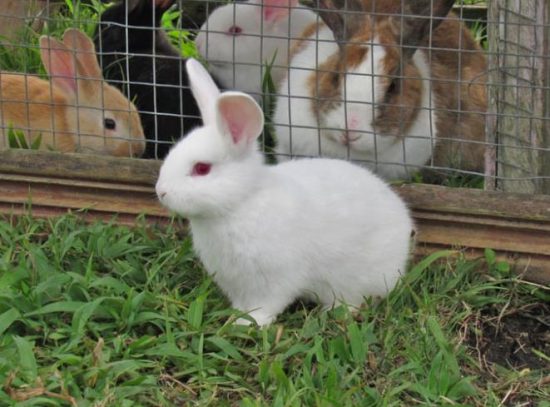
Domestic rabbits have a significantly longer lifespan than their wild counterparts, thanks to regular access to food, safe environments, and proper care. Understanding the rabbit lifespan and the various elements influencing it is crucial for pet owners who want to provide their furry friends with the best possible care and ensure they live long healthy lives.
The rabbit lifespan is important for anyone considering getting a pet rabbit or already owning one. Knowing the typical lifespan of a rabbit and the factors that can affect it allows pet owners to make informed decisions about their rabbit’s care and plan accordingly to meet their long-term needs.
A rabbit’s lifespan can be influenced by various elements, including its breed, nutrition, exercise, housing, veterinary care, and overall health management. By understanding these factors affecting rabbit lifespan, pet owners can take proactive steps to ensure their rabbit lives a long, happy, and healthy life.
Rabbit Breeds and Their Lifespans
The lifespan of a rabbit can vary greatly depending on the breed. In general, larger rabbit breeds tend to have shorter lifespans compared to their smaller, dwarf counterparts. This is due to a variety of factors, including genetics, overall health, and the unique care requirements of each breed.
Larger Breeds vs. Smaller Breeds
Larger rabbit breeds, such as the Flemish Giant or the American Chinchilla, typically live between 5 to 8 years on average. These larger rabbits often require more space, specialized diets, and increased veterinary attention to maintain their health and longevity. In contrast, smaller rabbit breeds like the Mini Rex or the Holland Lop can live up to 10 or even 12 years with proper care and management.
Purebred vs. Mixed Breed Rabbits
Purebred rabbits, while often prized for their distinct physical characteristics, generally have shorter lifespans than mixed-breed rabbits. Purebreds can be more susceptible to genetic disorders and health issues that can shorten their lifespan. On the other hand, mixed-breed rabbits, also known as “mutts,” tend to have a more diverse genetic makeup, making them more resilient and less prone to certain health problems. A mixed-breed rabbit may live anywhere from 8 to 12 years, depending on other factors such as diet, exercise, and veterinary care.
Ultimately, the lifespan of a rabbit is influenced by a combination of factors, including breed, genetics, and the quality of care provided by their owners. Understanding these differences allows rabbit enthusiasts to make informed decisions to ensure their furry companions live long, healthy, and fulfilling lives.
The Role of Nutrition and Exercise
Providing the right rabbit nutrition and rabbit exercise requirements is crucial in determining a rabbit’s lifespan. Rabbit owners must prioritize a balanced rabbit diet and ample daily activity to support their pet’s overall health and longevity.
Importance of Proper Diet
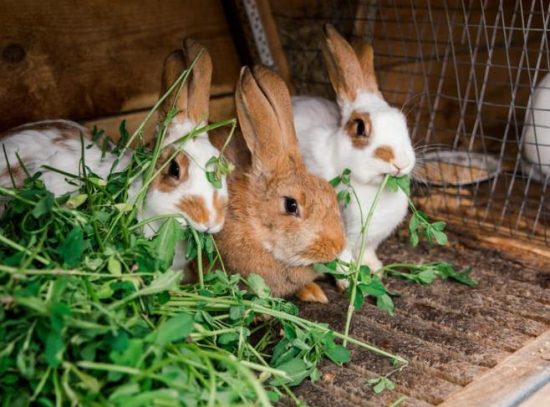
Rabbits have unique dietary needs that must be met to maintain their well-being. An ideal rabbit diet consists of unlimited high-quality hay, a small amount of pelleted feed, and various fresh vegetables. This nutrient-rich, fiber-filled regimen helps prevent digestive issues, dental problems, and other health concerns that can shorten a rabbit’s life. Neglecting a rabbit’s specific nutrition requirements can lead to obesity, malnutrition, and other complications that significantly impact their lifespan.
Exercise Requirements for Rabbits
In addition to a balanced rabbit diet, rabbits require ample daily exercise to thrive. Experts recommend providing rabbits at least 4 hours outside their cage daily to run, hop, and play. Insufficient rabbit exercise can result in obesity, muscle atrophy, and other health problems that may negatively affect a rabbit’s lifespan. Allowing rabbits to engage in their natural behaviors through regular activity is crucial for extending their longevity.
| Nutritional Requirement | Recommended Amount |
|---|---|
| Hay | Unlimited |
| Pellets | 1/8 to 1/4 cup per 4 lbs of body weight |
| Fresh Vegetables | 2 cups per 6 lbs of body weight |
| Exercise | At least 4 hours outside of cage per day |
Housing and Environment Considerations
Proper housing and environment are critical factors that can significantly impact a rabbit’s lifespan. Rabbits require ample living space, with their cages or enclosures measuring at least 5 square feet for larger breeds. Additionally, rabbits should be provided several hours outside their cage each day to exercise, run, and play freely. Maintaining a clean living environment is essential, as rabbits are meticulous groomers and sensitive to soiled bedding and feces.
Cage Size and Cleanliness
The rabbit’s cage or enclosure must be cleaned daily, with feces and soiled bedding removed promptly. A complete deep clean of the entire living area should be conducted at least once a week to ensure optimal rabbit housing cleanliness and prevent the buildup of harmful ammonia and bacteria. Providing ample rabbit cage size allows your pet to move freely, express natural behaviors, and maintain good respiratory and foot health.
Temperature and Safety Precautions
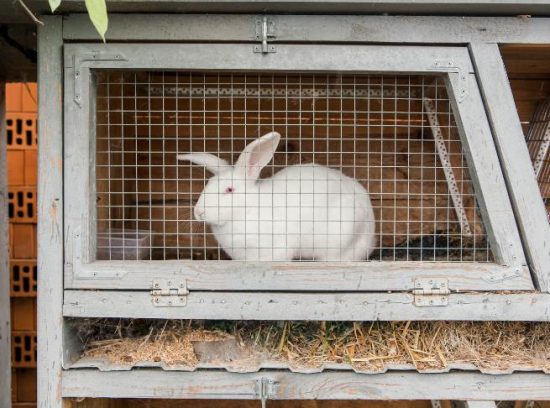
Maintaining the proper rabbit environment temperature, between 60-75°F, is crucial for your rabbit’s comfort and well-being. Extreme temperatures, whether hot or cold, can be detrimental to a rabbit’s health and lifespan. Additionally, it’s important to rabbit-proof your home by removing any potential rabbit housing requirements hazards, such as exposed electrical cords, sharp edges, or toxic plants, to ensure a safe and secure living space for your furry companion.
By providing your rabbit with a spacious, clean, and temperature-controlled environment, along with taking necessary safety precautions, you can help ensure your pet’s rabbit temperature needs are met and contribute to their overall longevity and quality of life.
Spaying and Neutering Pet Rabbits
Spaying or neutering pet rabbits can significantly extend their lifespan. Spaying female rabbits, in particular, provides crucial health benefits that help them live longer, healthier lives. Female rabbits who aren’t spayed are more likely to develop uterine tumors if they aren’t regularly being bred. By spaying female rabbits, this cancer risk is effectively prevented, allowing them to avoid this debilitating condition.
Neutering male rabbits also offers important health advantages and can help curb certain undesirable behavioral issues. Consulting a veterinarian and getting your pet rabbits spayed or neutered is an essential step for their overall wellbeing and longevity. This simple procedure not only improves the rabbits’ quality of life but also directly impacts their lifespan by reducing the risk of reproductive cancers and other related health problems.
Spaying female rabbits is particularly beneficial for extending their lifespan. Unspayed female rabbits have a high risk of developing uterine tumors, which can be both painful and life-threatening if left untreated. By removing the uterus and ovaries through spaying, this cancer risk is eliminated, allowing female rabbits to live longer, healthier lives. Spaying also helps prevent hormonal-related behavioral issues, such as territorial marking and aggression, further contributing to the overall well-being of the rabbit.
Veterinary Care for Rabbits
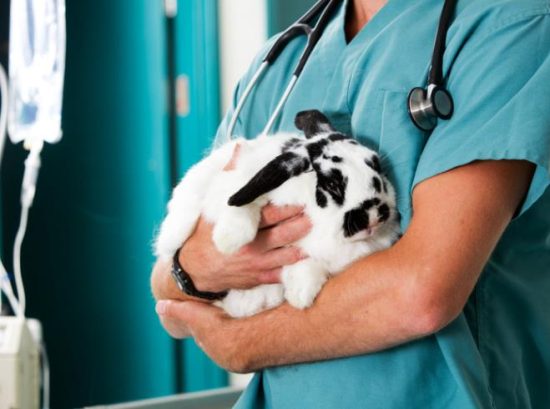
Providing proper veterinary care is crucial for maintaining the health and longevity of pet rabbits. Rabbits have unique healthcare needs, and it is essential to find a small animal or exotic pet veterinarian who specializes in treating these delicate creatures.
When searching for a rabbit veterinarian, look for a practitioner with specific experience and expertise in rabbit veterinary care. These specialists will have the knowledge and skills to accurately diagnose and effectively treat any health issues your rabbit may encounter. They can also provide valuable guidance on proper nutrition, housing, and preventative care to help ensure your rabbit lives a long, healthy life.
Regular Check-ups and Dental Care
Regular veterinary check-ups and dental cleanings are essential for maintaining your rabbit’s overall well-being. These visits allow your veterinarian to identify any potential problems early, such as overgrown teeth or early signs of illness, and provide prompt treatment. Routine dental cleanings are particularly important, as rabbits’ teeth continuously grow and can become problematic if not properly cared for. By prioritizing your rabbit’s check-ups and dental care, you can help prevent serious health complications and ensure your furry friend receives the attentive veterinary attention they need.
Prompt medical attention when your rabbit shows any signs of illness can also significantly improve its recovery and longevity. By working closely with a qualified rabbit veterinarian and providing your pet with the necessary veterinary care, you can help maximize your rabbit’s lifespan and ensure it enjoys a happy, healthy life by your side.
Common Rabbit Illnesses and Diseases
Rabbits can develop various health issues that can impact their lifespan if not properly addressed. Overgrown teeth, snuffles (pasteurellosis), uterine tumors in unspayed females, and the deadly myxomatosis virus are some of the more common rabbit illnesses.
Overgrown Teeth
Rabbits’ teeth continuously grow throughout their lives, and if they do not wear down properly, they can become overgrown. This can lead to difficulty eating, pain, and other complications. Maintaining a healthy diet high in hay and regular dental check-ups are crucial for preventing and addressing rabbit dental issues.
Snuffles (Pasteurellosis)
Snuffles, also known as pasteurellosis, is a respiratory infection caused by the Pasteurella bacteria. Symptoms include nasal discharge, sneezing, and difficulty breathing. This highly contagious condition can quickly become severe if not treated promptly with antibiotics prescribed by a veterinarian.
Uterine Tumors
Unspayed female rabbits have a high risk of developing uterine tumors, which can be life-threatening if left untreated. Spaying female rabbits before they reach 6 months of age is highly recommended to prevent this common rabbit health issue and extend their lifespan.
Myxomatosis
Myxomatosis is a deadly viral disease that is transmitted by insects, primarily fleas and mosquitoes. Symptoms include swelling of the head, eyes, and genitals, and it is often fatal if contracted. Protecting rabbits from insect bites and ensuring they are vaccinated against myxomatosis is crucial for their safety.
Recognizing the signs of these conditions and seeking prompt veterinary treatment is crucial for treating them effectively and preventing complications that could shorten a rabbit’s life. Maintaining good dental health, hygiene, and preventative care is key to avoiding many rabbit health problems.
How Long Do Rabbits Live?
The broad range given for the lifespan of pet rabbits is 5 to 8 years. However, a rabbit’s actual lifespan can vary greatly depending on factors such as breed, environment, nutrition, exercise, veterinary care, and overall health management. With proper care, many domestic rabbits can live 8 to 12 years, while the oldest recorded rabbit lived to 18 years and 10 months. Understanding the factors that influence a rabbit’s longevity is key to providing them with the best possible care and helping them live a long, healthy life.
Indoor vs. Outdoor Rabbits
The decision to keep a rabbit indoors or outdoors can significantly impact their lifespan. Outdoor rabbits face greater risks from predators and exposure to diseases like myxomatosis, which is often fatal. In contrast, indoor rabbits are protected from these dangers but must be provided with sufficient exercise, enrichment, and a safe, temperature-controlled environment.
Predator and Disease Risks
Outdoor rabbits are vulnerable to attacks from predators such as foxes, coyotes, and birds of prey. These threats pose a constant danger and can drastically shorten a rabbit’s lifespan. Furthermore, outdoor rabbits are at higher risk of contracting deadly diseases like myxomatosis, which can quickly spread through a population and significantly reduce their life expectancy.
Environmental Factors
The environmental factors in an indoor or outdoor setting can also have a significant impact on a rabbit’s lifespan. Indoor rabbits have better access to veterinary care, are less exposed to toxins, and live in a more controlled environment that can be tailored to their specific needs. Outdoor rabbits, on the other hand, may face more extreme temperature fluctuations and other environmental challenges that can compromise their health and longevity.
FAQs on how long do rabbits live
How old is a 2 year old rabbit?
A 2-year-old rabbit is considered an adult. Rabbits reach full maturity around 1 year old, so a 2-year-old rabbit is a mature, fully-grown animal.
How long do rabbits live as pets?
Domestic rabbits can live between 5 to 12 years, with many living up to 8 to 12 years with proper care. The oldest recorded rabbit lived to 18 years and 10 months.
Do indoor rabbits live longer?
Yes, indoor rabbits generally live longer than outdoor rabbits. Indoor rabbits are protected from predators and exposure to diseases, but they must be provided with sufficient exercise, enrichment, and a safe, temperature-controlled environment.
Do rabbits have a lifespan of 20 years?
No, rabbits do not typically live up to 20 years. The average lifespan of a domestic rabbit is 5 to 12 years, with the oldest recorded rabbit living to 18 years and 10 months.
How old is the oldest rabbit?
The oldest rabbit on record lived to be 18 years and 10 months old.
Can I leave my rabbit alone for 2 days?
It is not recommended to leave a rabbit alone for 2 days. Rabbits are social animals and require daily interaction, exercise, and care. Leaving a rabbit alone for that long can be detrimental to their health and wellbeing.

